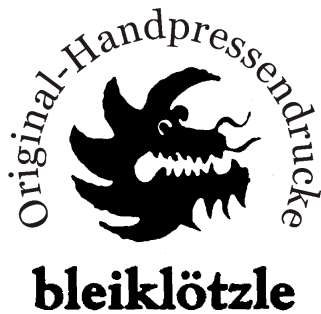|
Project Description
The artist’s book comprises of more than 60 essays and aphorisms, most of them written by Kurt Tucholsky some written by authors influenced by his work. The art work has the form of a file or record. It is sewn in a special way called “Preussische Archivheftung”. This was how a Prussian authority would have kept files in their archives. Documents of any size or format or quality could be kept like this and over the years more sheets and documents could be added making up a full record of a case or a person.
The basis of the art work is the following - totally fictional - story:
During the last years of World War 1 young Wilhelm Klemper is trained to become a letterpress printer. He takes up printing in a Berlin printing office in the 1920ies with the German capital having gone through a war and the young republic facing a revolution-like situation. When starting a printing process it is Klemper’s duty to control the first prints in order to get the printing press adjusted properly. Sometimes he longs for more time to read what his job makes him to print and puts misprints and spoils aside to take them home and read them in the evenings after work. Over the years his collection grows. Most of the essays have been written by a journalist called Tucholsky. A friend, who is a compositor working in another printing office, brings along more spoils and Wilhelm needs to get them stored properly. He sorts the misprints under three topics (1. German Language, 2. War and Peace, 3. Arts and Artists) and sews them into three files. In spring 1933 Wilhelm and his Jewish wife leave Germany together with a publisher. Most of their belongings are left behind and the files somehow end up with Walter Schmitzke, a civil servant in some Berlin authority. Frustrated by the political developments Walter Schmitzke takes refuge in the new party of the Nazis. When out for an evening beer with this people he realizes that the files he had wanted to throw away more than once could come in handy. He passes them on to a member of the party and thus the files turn into records used to give evidence of Tucholosky’s allegedly treacherous activities.
Techniques used
All text passages have been set by hand from metal type and are letterpress printed on a handmoved proofing press (KORREX). Mainly used type is Baskerville (MT), Optima, Parlamentsfraktur and Vendôme.
A number of different paper qualities have been used amongst them were deckle edge papers as well as machine made papers thus reflecting the idea of documents from a variety of sources making up the three files. Sheets are marked by blind embossings, rubber stamps and stickers indicating official signatures and registrations. The cover of the files has been made from old beige card board. The files are hand sewn. The introduction is a typewriter manuscript on old blue letter paper. All files rest in a brown corrugated card board (archives’) box.
The artist’s book has been made in an edition of 12 numbered and signed copies which are for sale. Copies 1-6 are the special edition, copies 7-12 are the standard edition. Four extra copies are not for sale: Two copies are special exhibit copies and another two copies will stay with the artist.
|



